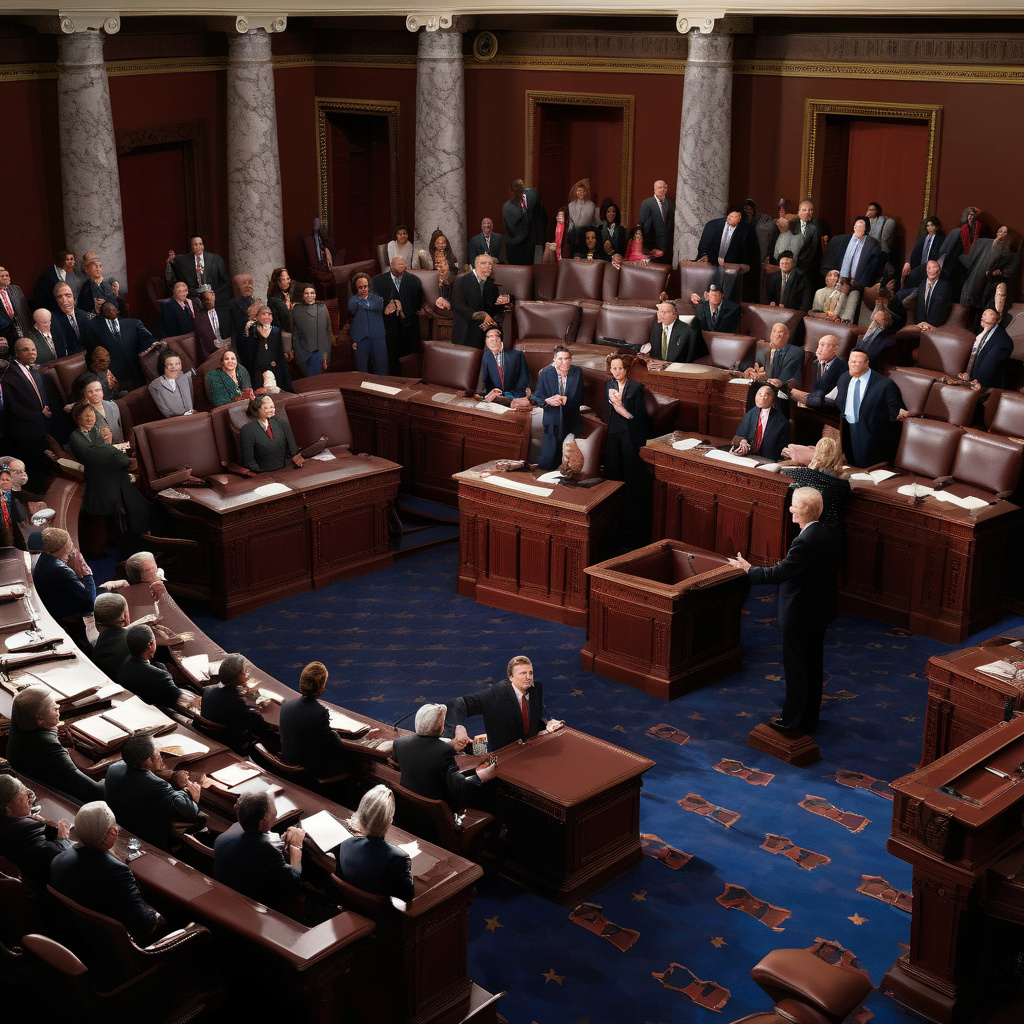Senate Clears $3.3T Trump Bill with Massive Defense Boost, Healthcare and Energy Cuts
The Republican-controlled U.S. Senate passed President Donald Trump’s sweeping tax-and-spending bill on Tuesday, locking in a $3.3 trillion package that includes significant increases in defense spending while making cuts to healthcare and energy sectors. This move signals a major shift in the country’s financial priorities, with implications that are set to reverberate across various industries and sectors.
One of the most notable aspects of this bill is the substantial boost in defense spending. With tensions rising around the globe and national security concerns at the forefront of many policymakers’ minds, the decision to allocate more funds to the military is seen as a strategic move to ensure the country’s safety and preparedness in an increasingly uncertain world. This increase in defense spending is expected to have far-reaching effects on defense contractors, technology companies, and other related industries, potentially leading to job creation and economic growth in those sectors.
However, this uptick in defense spending comes at a cost, as the bill also includes cuts to healthcare and energy programs. The healthcare sector, already grappling with the challenges of a global pandemic, is now faced with the prospect of reduced funding and resources. This could have serious implications for patient care, medical research, and access to essential services, with many healthcare providers voicing concerns about the potential impact of these cuts on their ability to deliver quality care to those in need.
Similarly, the energy sector is bracing for the effects of the bill, which includes cuts to renewable energy programs and incentives. As the world increasingly shifts towards sustainable and clean energy sources, these cuts could hinder the progress of the renewable energy industry and dampen efforts to combat climate change. This move has drawn criticism from environmental advocates and renewable energy companies, who argue that now is not the time to be scaling back on investments in clean energy technology.
Overall, the passage of this $3.3 trillion bill represents a significant milestone in President Trump’s legislative agenda and sets the stage for a new chapter in the country’s financial landscape. As the implications of this bill begin to unfold, it is clear that the decisions made in Washington will have far-reaching effects on businesses, industries, and individuals across the nation. It is now more important than ever for stakeholders to stay informed, adapt to the changing environment, and position themselves for success in the evolving economic landscape.
In conclusion, the Senate’s approval of the $3.3 trillion Trump bill with its focus on defense spending, healthcare cuts, and energy reductions marks a pivotal moment in the country’s fiscal policy. The repercussions of these decisions are likely to be felt across various sectors, shaping the economic outlook for the foreseeable future.
Senate, Trump, Bill, Defense Boost, Healthcare Cuts












